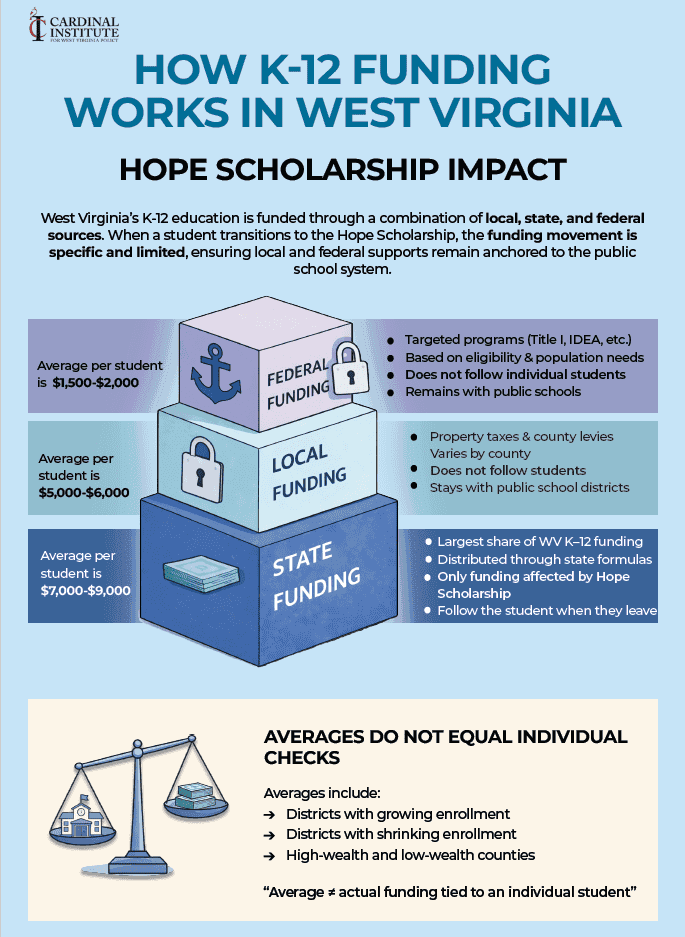
Nurse Practitioners Should Have Greater Freedom
Cardinal Team
Health & Health Care in West Virginia
In 2018, West Virginia ranked highest in the nation for poor physical health, poor mental health, obesity, and heart attacks. Additionally, 10% of our adult residents are likely to be diagnosed with diabetes (the second-highest rate nationwide). 33% of residents have arthritis (the highest rate in the country). West Virginia is as far as a state can be from being a home of good health.
Now, we’re facing a hospital crisis. Hospitals in Bluefield and Fairmont have closed their doors, citing problems with the increasing cost for continued operation. As a result, residents of these communities now have to drive long distances to get the care they need.
According to the American Hospital Association’s Rural Report, 20% of Americans live in rural communities, but only 10% of all doctors practice in them. The problem? The plethora of regulatory restrictions states place on a necessary service and those who provide it.
Scope of Practice for Nurse Practitioners
All healthcare professionals practice within the confines of rules set in one’s state,. These laws map out the process to receive the government’s permission to work. However, once states award licenses, the restrictions don’t stop. State boards create continuing rules about how these individuals operate and what supervision requirements they need to do so. Nurse practitioners (NP) are among those affected.
Becoming a nurse practitioner requires one to receive identification as a registered nurse (RN), a Bachelor of Science in Nursing (BSN), completion of a practitioner oriented graduate master’s or doctoral nursing program, and a passing score on the board certification exam. Yet, this is still not enough for the state to trust them with care. Scope-of-practice laws are an extra layer of burdens that prevent NPs from operating freely.
Scope-of-practice laws restrict what nurses, nurse practitioners, physician’s assistants, and pharmacists may do during the care of a patient and vary between states. These state-mandated rules are restrictive and limit access to medical care. Not to mention, fewer providers means increased costs, wait times, and distance to your provider.
For example current scope laws in Oregon allow nurse practitioners to diagnose, treat, and issue prescriptions to patients without physician involvement. On the other hand, West Virginia allows nurse practitioners to diagnose and treat patients but requires permission from the Nursing Board and a physician to prescribe medications. Drastic variability of regulations for each state drive qualified professionals out and limit the care the ones who stay can provide.
Scope of Practice Laws Are Too Restrictive
State medical boards argue that health care suffers when policymakers loosen these scope of practice restrictions. However, data tells the opposite story. In 2017, a study compared the states with differing practice laws for nurses and found no connection between strict rules and the quality of care. Secondary research even saw a decrease in emergency room use when nurse practitioners were permitted to operate freely and even open their own practice.
Michigan’s Governor, Gretchen Whitmer, suspended scope-of-practice laws in 2020 to aid in the increasing need of care during the COVID pandemic.
“I have no doubt suspending these laws helped save countless lives and ensured our hospitals were fully staffed to care for COVID-19 patients,” she said.
By 2033 the U.S. is estimated to have a shortage of 54,100 to 139,000 physicians for primary and specialty care. Nurses account for the majority of the population of healthcare professionals. The American Association of Colleges of Nurses estimates the U.S. will gain 200,000 nurses by 2026. This gives nurses a critical role in the future of our health.
We Need to Give Nurse Practitioners More Freedom
To combat the declining health of West Virginia, nurse practitioners need full autonomy.
A 2016 bill made a significant change in our scope-of-practice laws which now allows for West Virginia nurse practitioners with at least three years of experience to care for patients without a physician’s oversight. This has been a positive change in West Virginia’s healthcare system. However, nurse practitioners are still unable to prescribe schedule II narcotics due to “lack of expertise.” We are one of five states with this layer of restriction. Supporters of this say allowing more individuals prescriptive power will increase addiction rates. Yet, states with more prescriptive power fail to have worse addiction rates.
24 states have full practice authority for nurse practitioners. States with fewer restrictions have a higher rate of providing primary care. West Virginia’s nurses are the backbone of many of our rural communities, seeing patients through all stages of life. For a healthier, happier West Virginia, nurse practitioners should receive the full autonomy they rightfully deserve.
Jessica Dobrinsky is the Policy Development Associate for the Cardinal Institute for West Virginia Policy.







